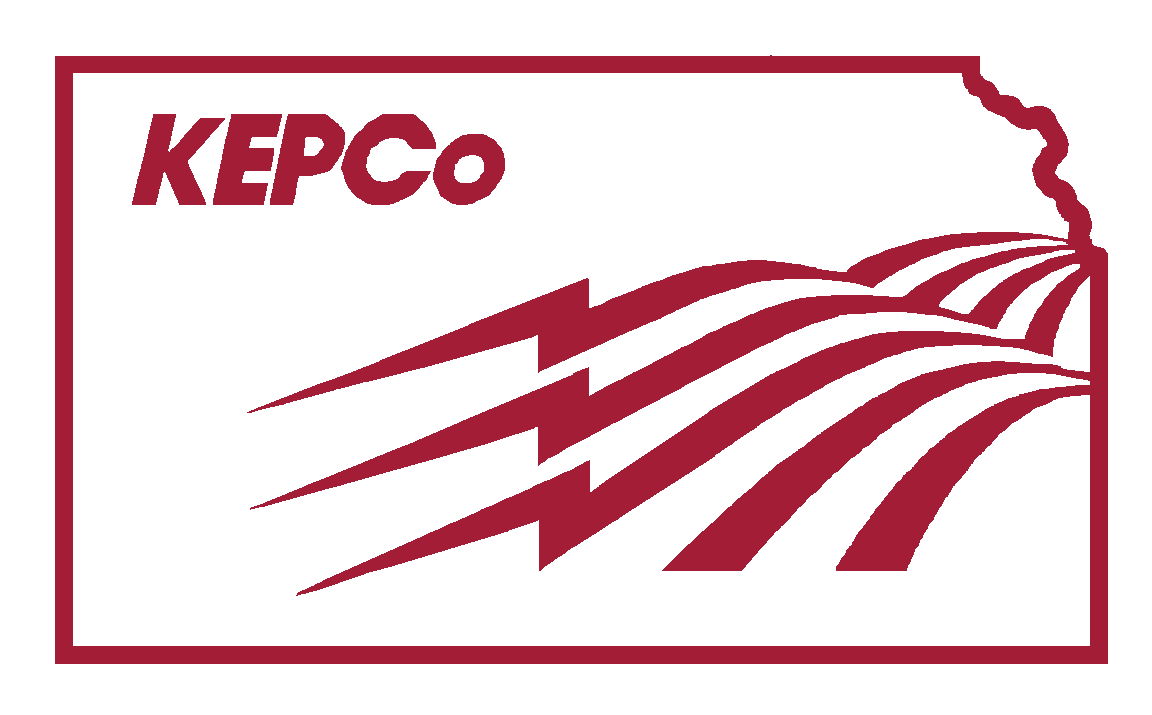A Moment with the CEO
BY SUZANNE LANE
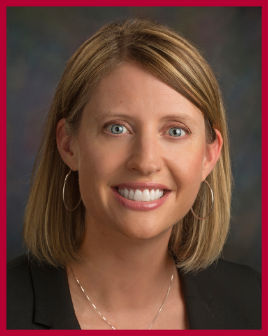
Our purpose statement is clear: KEPCo strives for excellence in providing safe, reliable, economical, and environmentally responsible power supply, exceptional support, and innovative services to our Members and the Kansans they serve.
When it comes to “living” our purpose, 2021 gave the KEPCo team many opportunities to demonstrate what our purpose means to us, to the 16 member-owners we proudly serve, and to the nearly 200,000 rural Kansans served by our members. As we wrap up the first quarter of a new year and start the spring season—which, after what has seemed like a long winter, could not come fast enough—it’s a great time to reflect on all that KEPCo accomplished on behalf of its members in 2021.
Thanks to the hard work and dedication of the KEPCo employee team and the support of the KEPCo Board of Trustees, I’m pleased to highlight our key achievements from last year:
- We kept our staff, our members, and the public safe by having ZERO safety incidents—marking our 12th consecutive year without a lost-time accident;
- We kept our staff, our members, our assets, our systems, and our data cyber safe overall—we had one cyber security incident, where no data or money was lost, but where lessons were learned and safe practices were reinforced;
- We mitigated cost impacts to our members related to Winter Storm Uri by adopting a 24-month repayment schedule;
- We transitioned all KEPCo employees and retirees to a new health insurance plan;
- We completed a salary and wages study, and implemented a related policy and plan;
- We developed and implemented KEPCo’s first energy hedging policy, strategy, and product purchase;
- We developed and implemented KEPCo’s first energy emergency policy;
- We developed and implemented a new enterprise risk management policy and created related risk mitigation plans;
- We ended the year with a solid net margin and equity ratio, and met our TIER and DSC requirements;
- We maintained overall stable rates considering: 1) 2021 was the first year with only 16 members (2 members departed at the end of 2020), 2) natural gas and energy prices increased, and 3) the extreme, unprecedented costs associated with Winter Storm Uri;
- We completed another year where our owned and purchased resources were reliable and valuable overall;
- We completed our 5-year resource planning study and integrated resource plan;
- We developed and issued a request for proposals for about 10% of our power supply needs;
- We remained engaged at the Federal Energy Regulatory Commission (FERC) regarding the cost-based formula rate for a significant portion of our power supply, resulting in a sizeable refund for KEPCo to date, with additional savings expected, pending settlement outcomes—and, at the same time, advocating for accuracy, appropriate accounting principles, and adherence to protocols;
- We successfully facilitated the 2021 load management season, garnering significant savings for members over the related 12-month period;
- We successfully mitigated, adapted, and pivoted through the many challenges associated with the COVID-19 pandemic;
- We continued our advocacy with the Kansas Legislature, closely working with our fellow cooperatives and utility industry peers to assure the cooperative model and the need for affordable, reliable power was understood as decisions were made;
- We remained engaged at the Southwest Power Pool, Inc. (SPP), advocating for members in areas involving reliability, cost allocation, distributed energy resources, energy storage, and the value of fuel diversity; and
- Our for-profit engineering subsidiary, KEPCo Services, Inc. (KSI), had a successful, profitable year.
I am very grateful for our entire team as they worked diligently to assure these important accomplishments happened on behalf of our members in a way that follows our purpose and principles. Afterall, we live to serve our members, and we are honored to do so each and every day.
SHELLY AZEVEDO has been hired as Finance and Accounts Payable/Payroll Specialist to replace Shari Koch, who will be retiring this summer.
Shelly joined KEPCo on February 1 and brings over five years of experience in payroll, accounts receivable, accounts payable, and human resources, most recently with the accounting firm of Wendling Noe Nelson & Johnson LLC.
Originally from Bandera County, Texas, Shelly also lived in Topeka growing up and graduated from Topeka High School. She earned her Bachelor of Arts in Accounting from the University of Texas at San Antonio.
Shelly is married to Jason, and they have a two-year old son, Wyatt. In her spare time, Shelly enjoys crafts, hiking, and volunteering.
Welcome aboard, Shelly!
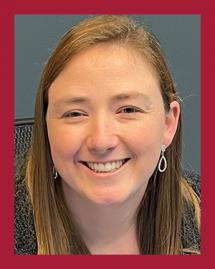
2022 Legislative Update
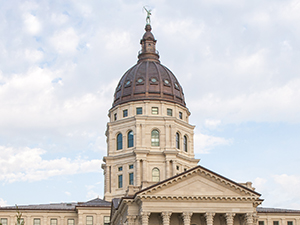
The Kansas Legislature convened on January 10 to kick-off the 2022 session. This year, considerable attention has been focused on renewable energy, as several bills were introduced in Senate committees that would place qualifications and specifications on the siting, development, and operation of renewable generating facilities. “KEPCo, KEC, Sunflower, and Midwest Energy worked collectively to ensure bills and issues impacting electric cooperatives were examined, evaluated, and discussed, resulting in a unified position being delivered to the Legislature,” said Susan Cunningham, KEPCo SVP, Regulatory and Government Affairs, and General Counsel.
- SB323 – Concerning wind and solar leases and easements; providing certain requirements for such conveyances; requiring execution of a facility agreement with the landowner. The bill was heard and worked but did not receive a motion from the committee to vote on the bill.
- SB324 – Concerning property; relating to easements and leases involving wind or solar resources and technologies; providing circumstances for termination of such instruments; amending K.S.A. 2021 Supp. 58-2272 and repealing the existing section. The bill was heard and worked but did not receive a motion from the committee to vote on the bill.
- SB325 – Concerning property; relating to wind and solar energy facilities; requiring appropriate zoning of land prior to construction of such facilities; establishing protest procedures for county zoning resolutions; requirements for the recordation of wind and solar energy leases and easements; amending K.S.A. 58-2221 and repealing the existing section. The bill was heard but not worked.
- SB353 – Concerning wind generation facilities; relating to construction and setback requirements; requiring local boards of county commissioners to approve applications for construction; establishing certain notification and health and safety requirements; establishing certain operating conditions for existing facilities (e.g., siting, sound studies and remediation, shadow flicker, setbacks). The bill was heard but not worked.
- SB374 – Relating to property taxation; discontinuing the property tax exemption for certain renewable energy facilities; amending K.S.A. 79-201 and repealing the existing section. The bill was introduced in Senate Assessment and Taxation and was heard, worked, and did not pass out of the committee favorably. Later in the same day, the committee met once more, and a motion was made to amend SB374 into a HB2315. The motion failed.
- SB383 – Relating to wind and solar electric generation facilities; establishing the Kansas property value protection act; providing for compensation to nonparticipating landowners for diminution in real property value under certain conditions. The bill did not receive a hearing.
- SB478 – Establishes requirements for wind energy conversion system obstruction lighting to mitigate the visual impact of such lighting systems. The bill was heard and worked. During the working of the bill, a motion was made and carried to table the bill. A majority vote of the committee members is required to bring the bill off the table.
- SB481 – Establishes construction, notification, and health and safety requirements for commercial-scale and limited-scale solar energy conversion systems. The bill did not receive a hearing.
- SB417 – The bill relates to solid waste; establishing minimum and maximum permit renewal fees for certain disposal areas and processing facilities; amending K.S.A. 65-3407 and repealing the existing section. This bill pertains to coal combustion residuals (CCR) and would allow the state, through the Kansas Department of Health and Environment, to develop an “equal to” program for CCR oversight rather than deferring that function to the U.S. Environmental Protection Agency. Introduced in Senate Agriculture and Natural Resources Committee, the bill passed out of committee and the Senate as a whole favorably (39 yes – 1 no). The bill was passed favorably by the House Energy, Utilities and Telecommunications Committee and is expected to be passed by the House as a whole.
- SB480 – Relating to electric, natural gas, and water utilities; prohibiting recovery of dues, donations, or contributions made to charitable and social organizations in customer rates; requiring the Kansas Corporation Commission to disallow such expenditures in rate proceedings; amending K.S.A. 66-101f, 66-1,206, and 66-1,236 and repealing the existing sections. The bill did not receive a hearing.
- SB359 – Concerning sales taxation; relating to rates and exemptions; expanding the eligible uses for the 0% state rate for sales of certain utilities and providing for the levying of such tax by cities and counties; authorizing cities and counties to exempt sales of such utilities from such city or county taxes; amending K.S.A. 2021 Supp. 12-189a and 79-3603 and repealing the existing sections. The bill would eliminate the Kansas sales tax collected by all utilities. The bill was heard in Senate Assessment and Taxation with no opposition The provisions of the bill were subsequently amended into SB339, the Senate food sales tax exemption bill, and is still to be considered by the Senate as a whole.
- SB349 – Relating to the Kansas Corporation Commission; providing limitations upon certain retail electric rate increases, including a 1% annual rate cap. The author amended the bill to limit the jurisdiction of the bill to electric investor-owned utilities with 100,000 customers or more. The bill was heard but not worked.
- SB350 – Relating to the Kansas Corporation Commission; authorizing rate recovery for certain electric generation facilities; amending K.S.A. 2021 Supp. 66-1239 and repealing the existing section. The bill was introduced by Evergy and would allow the rate recovery of coal-fired generation facilities operating at a low-capacity factor or that are offline during normal operating conditions and provide capacity for reliability purposes only. The bill did not receive a hearing.
- HB2630 – The bill pertains to the transportation of radioactive materials; establishing fees for the transportation of certain radioactive materials through and within the state; establishing the radioactive materials transportation operating fund. The bill was heard in House Transportation but has not yet been worked.
- HB2689 – Relating to coal-fired electric generation facilities; limiting a public utility’s cost recovery when replacing or retiring facilities; requiring electric public utilities to make efforts to sell such facilities; obligations to purchase electricity from purchased facilities; exempting certain facilities from commission jurisdiction; amending K.S.A. 2021 Supp. 66-104 and repealing the existing section. In short, the bill would not allow cost recovery on coal plants that have been taken out of service and replaced with another form of generation. The bill is exempt and has yet to be heard.
- HB2696 – The bill establishes generation requirements for renewable energy, in that renewable generating sources must make available generating sources that are capable of supplying 50% or more of the renewable generating facility’s nameplate capacity. The bill is exempt and has yet to be heard.
- HCR2053 – A concurrent resolution denouncing price gouging and market manipulation in the natural gas marketplace and supporting investigations into the extraordinary price increases of wholesale natural gas during the extreme cold weather event of February 2021. The resolution passed both chambers favorably.
KEPCo Evaluating EV Charger Rebate
In January, KEPCo staff began researching and evaluating an electric vehicle (EV) Level 2 charger rebate program. Incentives are being offered by cities, states, the federal government, and other entities to promote and accelerate EV adoption. In addition, scores of electric cooperatives have instituted Level 2 EV charger rebate programs to enable EV owners to charge during off-peak hours in order to reduce load during critical times. Level 2 chargers substantially reduce the amount of time required to achieve a full charge, as compared to a Level 1 charger.
Staff is examining commonalities of rebate programs from electric cooperatives around the country to determine similarities and best practices. Staff will present the research data to the KEPCo Board for consideration at a future meeting.
“Electric vehicles will provide a load growth opportunity for KEPCo and its Member cooperatives and, typically, EV charging will occur in off-peak hours, which is ideal from an energy cost perspective. As EVs continue to be adopted, the additional off-peak kWh sales will put downward pressure on rates,” said Suzanne Lane, KEPCo EVP and CEO.
KSI Assisting with Member Solar Projects
In 2020, 12 KEPCo member cooperatives joined together to form the Kansas Cooperative Sun Power Program, a series of solar farms developed by Today’s Power, Inc., totaling 20 MW of solar power that will provide year-round solar energy to the retail members of the 12 participating cooperatives.
In 2021, KEPCo’s wholly owned, for-profit engineering subsidiary, KEPCo Services, Inc. (KSI), was actively involved with six of the cooperatives that installed 1-MW solar arrays at 11 different physical locations across Kansas. This year, KSI has been working with the remaining cooperatives, with the goal of ensuring their projects are completed and online by June 1.
As with the projects completed last year, KSI is partnering again with ElectriComm, Inc., to design, procure materials, fabricate, and install the relay and control aspects of the projects.
KSI is responsible for the relay and control design, as well as relay settings and recloser settings. The relay and control cabinets are being built and tested by ElectriComm, and upon satisfactory acceptance testing, the cabinets will be delivered to the sites, installed, and interconnected with reclosers, both at the host substations and the solar sites. Once completely interconnected, the relay cabinets will be commissioned, placed into service, and the solar arrays will be energized.
“These projects have been a wonderful opportunity for KSI, as KSI staff has gained additional knowledge and experience with many facets associated with solar generation installation. This experience will serve KSI and KEPCo’s Member cooperatives well as other Members are contemplating adding solar generation,” said Rick Johnson, KSI Principal Engineer.
Prairie Sky Turns 5
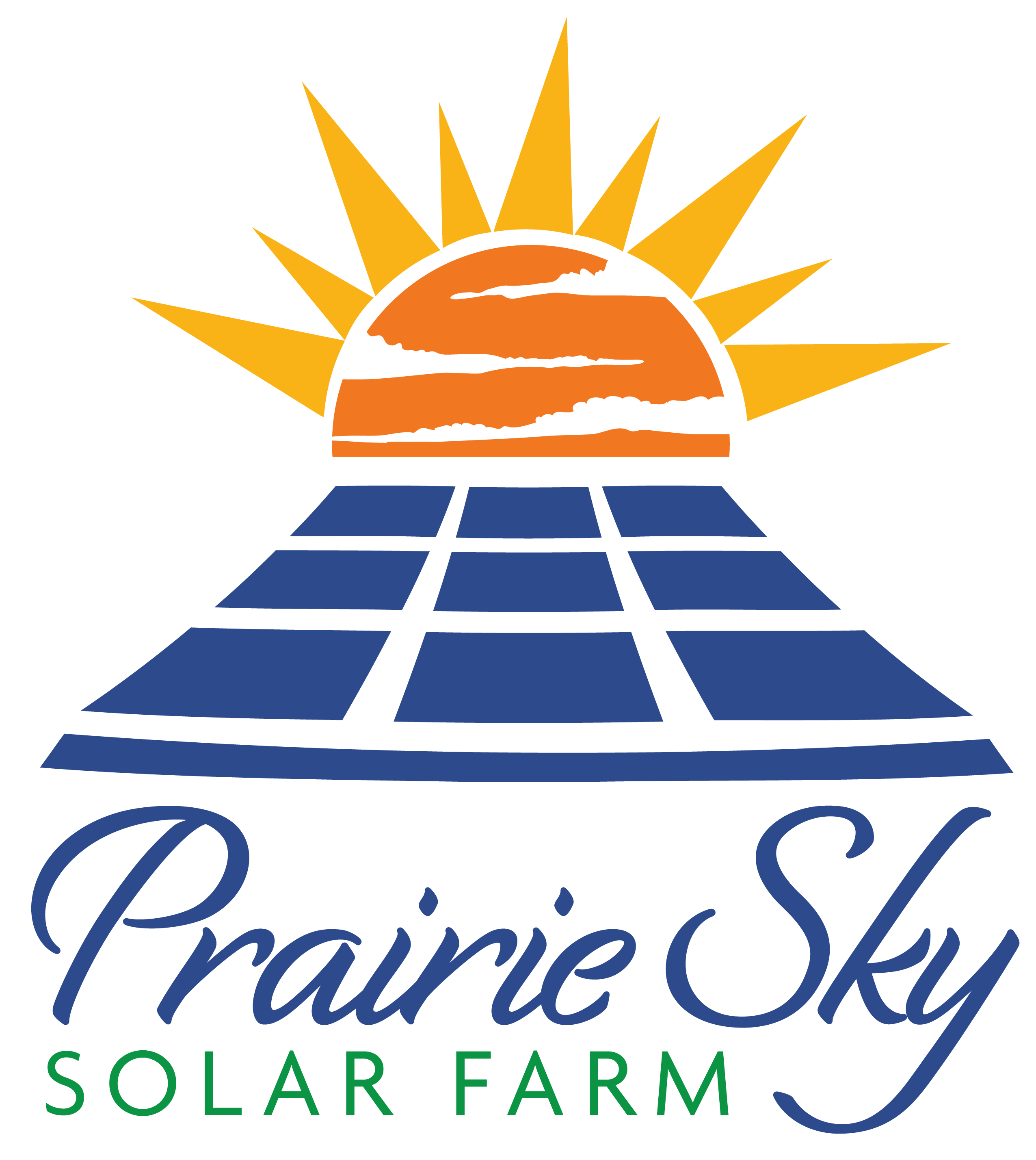
In 2016, KEPCo’s board of trustees unanimously approved the addition of Prairie Sky Solar Farm, a 1-MW fixed-tilt solar facility, to its already diverse resource mix, which became operational in February 2017. Located on 22.5 acres in Butler County, Prairie Sky is comprised of 4,560 photovoltaic panels and is capable of producing enough energy to supply the needs of about 164 homes. Prairie Sky was the first utility-scale solar project in Kansas. Until Prairie Sky, solar energy in Kansas consisted of community-solar projects, commercial installations, and residential rooftop solar.
Mark Barbee, KEPCo SVP and COO, believes that Prairie Sky has been a valuable resource for KEPCo and also a good learning opportunity for the KEPCo staff and others. “In addition to the economic benefits, Prairie Sky also provides an environmental benefit. Producing solar energy reduces our need for other energy forms that emit carbon dioxide and other undesirable greenhouse gases. The developed portion of Prairie Sky covers about 8 acres. The balance of the site has been planted to a native plant mixture that supports local wildlife,” said Barbee.
Generating Safety:
Spring Safety Tips
As each new season begins, the elements of the weather and the traditions of the season leave us with different safety precautions and tips to consider. As we put the risks associated with winter weather behind us, spring has its own set of hazards to consider. Here are a few spring safety tips to keep yourself and your family safe as we transition into the new season.
- It’s time to clear the clutter. Dispose of any flammable materials that have accumulated since last spring (i.e., paint cans, old rags, magazines, newspapers, etc.)
- Consider your smoke alarms. Do you have enough in your residence or workplace? Change the batteries each spring to be sure you are properly prepared for an emergency.
- Clean the dust covers of carbon monoxide detectors.
- Be ready in the event of a fire or severe storm by reviewing your emergency plan with your family or employees.
- Clean or replace your furnace filter.
- Grease can accumulate on your stove hood. Thoroughly cleaning the filter is one way to keep flames from spreading should a fire break out.
- Check all fire extinguisher needle indicators to be sure the extinguisher has a full charge.
- Clean around your dryer. Pay close attention to ducts or dampers to be sure that lint has not accumulated and blocked this space. Accumulation of lint can lead to a fire.
- Check all electric cords to make sure they are not frayed` and wires are not visible.
- Make sure your gutters are free from any obstructions and are flowing freely.
Steve Foss and Jim Currie Retire
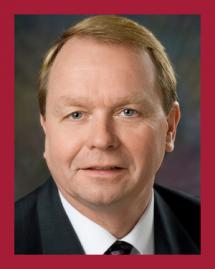
FreeState Electric Cooperative, Inc. (FreeState) CEO STEVE FOSS retired at the end of 2021, following a 37-year career with electric cooperatives, of which 14 were spent in Kansas. Steve was hired in 2008 as the general manager of Leavenworth-Jefferson Electric Cooperative (LJEC) and in 2017, was instrumental in leading the consolidation of LJEC and Kaw Valley Electric Cooperative, Inc. into FreeState.
Beginning in 2008, Steve served as a KEPCo Alternate Trustee for LJEC. In 2016, Steve became Trustee and was also elected as a member of the KEPCo Executive Committee. In 2018, he was elected KEPCo Secretary and was elected KEPCo Vice President in 2020.
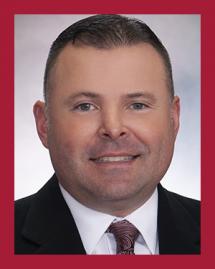
CHRIS PARR previously FreeState’s Assistant General Manager, was promoted to CEO and will also serve as KEPCo Trustee for FreeState. He had served as the Assistant General Manager of LJEC and FreeState since 2013. Chris has 17 years of experience in the utility industry, which includes positions with Westar Energy, KCP&L, Great Plains Energy, Kansas City Board of Public Utilities, and FreeState.
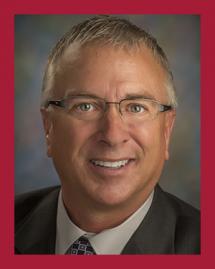
JIM CURRIE, General Manager of Brown-Atchison Electric Cooperative Association, Inc. (Brown-Atchison), retired at the end of January 2022 after serving nearly 44 years with the cooperative.
Jim began his career with Brown-Atchison in 1978 as an apprentice lineman. In 2006, he was promoted to line superintendent and in 2013, was selected as general manager. Jim served as Brown-Atchison’s KEPCo Alternate Trustee since 2013.
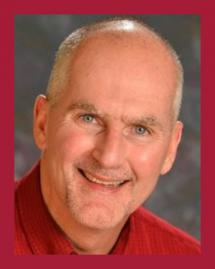
After a nationwide search, MICHAEL VOLKER was selected to replace Currie. Volker is not new to Kansas. He spent 15 years at Midwest Energy, Inc. (Midwest Energy), with his last role there as Manager of Regulatory & Energy Services. Subsequent to Midwest Energy, Michael was the Vice President of Utility Services at Corn Belt Energy Corporation and then moved on to East River Electric Power Cooperative, Inc. as Manager of Rates & Treasury. Volker will serve as KEPCo Alternate Trustee for Brown-Atchison.
“On behalf of the KEPCo Board of Trustees and KEPCo staff, I thank Jim and Steve for their years of dedicated service and leadership in the KEPCo boardroom. Their experience and knowledge base have been valuable assets to KEPCo. Jim and Steve were cornerstones in many decisions and policies that will positively impact KEPCo and our Member cooperatives for years to come. We wish them a long, happy, and well-deserved retirement,” said Suzanne Lane, KEPCo EVP and CEO.
